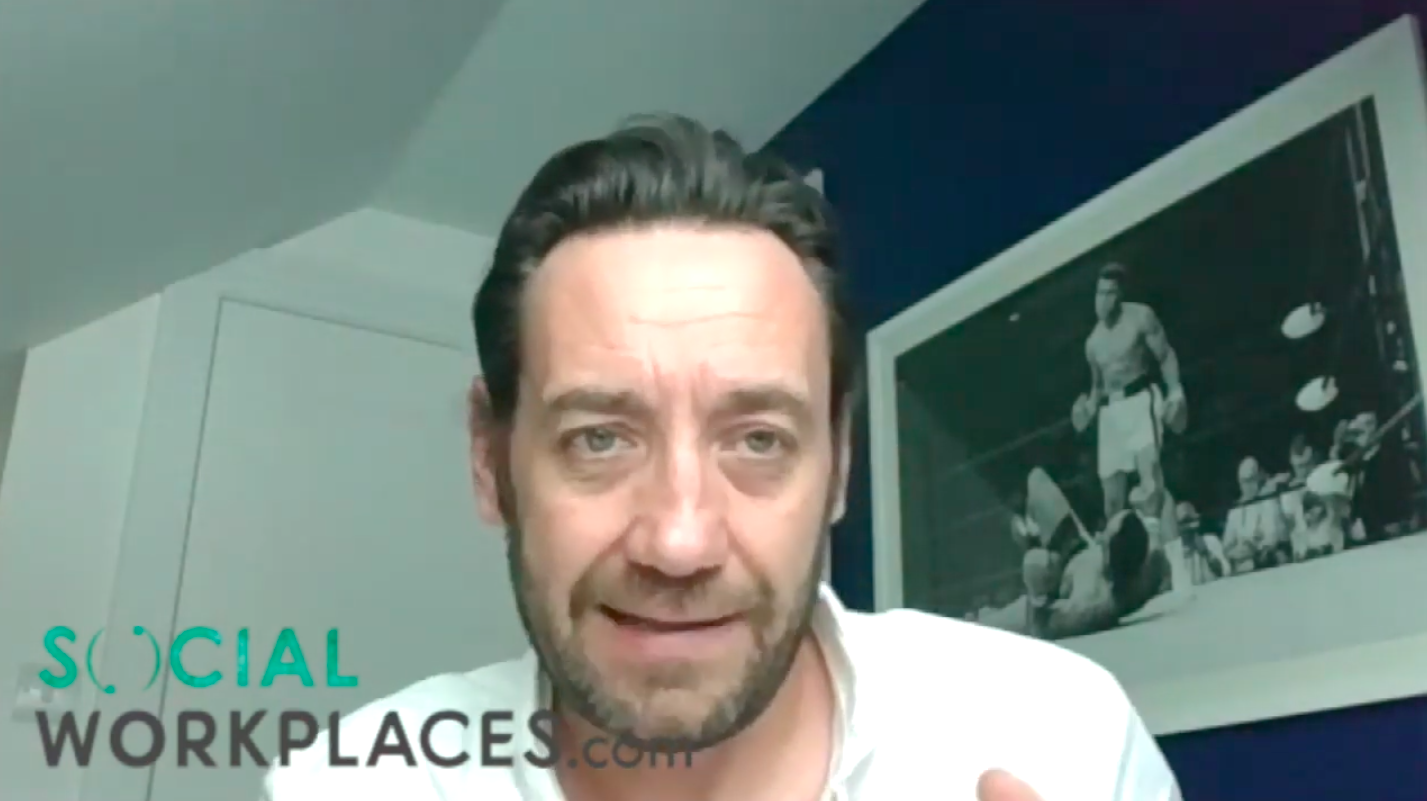Lee Elliott is a London based flex workspace expert who provides insight and foresight into the changing global workplace. He is the Global Head of Occupier Research at Knight Frank, the international real estate advise company. Lee Elliott is also the co-author of “Power of Partnership“, a recent report that analyzes the evolution of space-as-a-service and how the rise of coworking and flexible products has changed the real estate narrative irreversibly. In this video interview, Lee shares with us his knowledge, insights and vision of the coworking and flex workspace market and where it could lead us. [Check the main takeaways of the interview summarized below the video]
Main takeaways
The highlights of our conversation with Lee Elliott can be found below:
- “The coworking phenomenon has changed the real estate narrative for the benefit of everybody in the market“, says Lee Elliott. “However, we need more discipline to figure out what is coworking and what isn’t; there isn’t a real definition on what’s true coworking, what’s serviced office, what’s flexible… there is a melting-pot which really doesn’t help the market”.
- The “Power of Partnership” report aims to make the different understandings of the market clearer. It looks at the last decade of coworking in London and in the UK market and summarizes the evolution of the space-as-a-service in 3 main phases:
-
- First phase. In the beginning, the first phase was the one when coworking spaces were not taken very seriously in the real estate market. It was called an “un-easy co-existence”. There was not a real understanding of what coworking is.
- Second phase. Five years ago, we entered a second phase. The tone changed. Many landlords figured out that the unconventional lease model was important for them to address the needs of a new profile of tenants. There was also a desire to embrace more flexibility. Landlords recognized that coworking operators, big or small, could add value and help attract clients for in conventional lease. It provided an over-flow for the occupier as well. It could activate the building. It could allow to easily have more extra space for occupiers. Some landlords even created their own brand, like British Land. Some have been successful with that. “That second phase was progressive; it brought more flexibility and also more competition in the coworking market”, says Lee.
- Third phase. It’s the one that has just started, likely exacerbated by the Covid-19 crisis. There will be a growing distinction between pure coworking services and managed solutions. Classical coworking will be with space shared on the same floor with different players. The managed solutions will run a flexible lease with additional services, but for the benefit of only one occupier. Social distancing will be hard to manage in the classical coworking world, for the moment. On top of that, operators are financially challenged. This is damaging. On the flip side, managed solutions are more and more demanded.
-
- Four things will drive the market, as far as Lee Elliott sees it. Two on the short term, two on the longer term:
-
- Conventional buildings will only allow 50% occupancy. Hence, people will work from home or go to the flex market to add capacity.
- Many companies are in the process of moving. Covid-19 will delay the process and demand for coworking will increase on the short term. These two are drivers for the flex market due to the need for backups.
- On the longer term, starting in 2021, occupiers want to align their plan on real estate and commit less on long term, hence they are considering flexible options to structurally adapt.
- There is no going back form the digital transformation of businesses that has happened over the last month.
-
- There is three times more coworking capacity in London than in NYC.
- With Covid-19, occupiers will spread their staff.
- We might see the emergence of satellite offices around London. It’s a big opportunity for coworking operators, for the big players and the smaller independent players. “We are seeing this model rising in Australia, already, and even in Kenya”.
- It’s a universal trend with leading cities such as London. Others will soon follow.
- It will take around 5 years. “We have been terribly binary in the Real Estate world. Either work from home or from the head office”, states Lee.
- Covid-19 is enlightening us on the other options. “Twitter story is incredible. Allow people to work from where they want, including satellite workplaces close to their home”.
- The office of the future will be a choice, not an obligation. There will be the need to justify the commute.
- However, for the moment there are still questions and concerns. Part of the solution will come from flex. “And maybe we will also figure out that we need the 30 or 60 min commute time to think and take a breath”.
- We will likely see a consolidation of the market accelerated by the Covid-19 crisis.
- “Real Estate landlords created great physical environments, but they were less good in creating a great service layer”, adds Lee.
Find below the podcast version of the interview to learn more about Lee Elliott’s vision on the evolution of the space as a service for the past 10 years and where the current Covid-19 situation could lead us.
Join the Coworking Europe conference for more insights, data and connections!




0 Comments